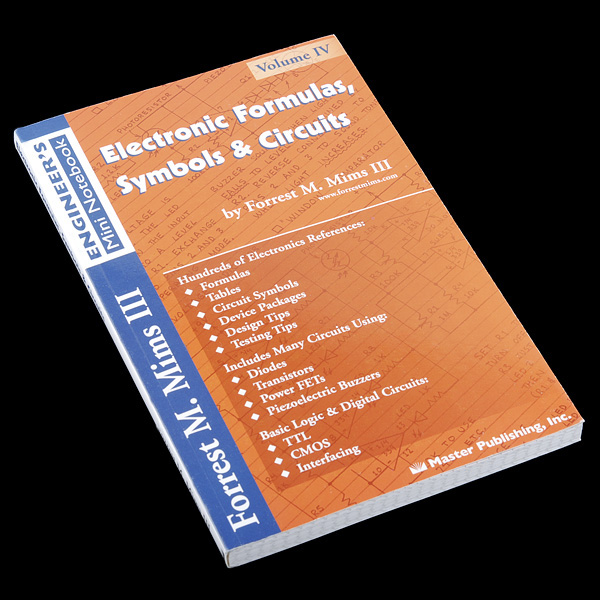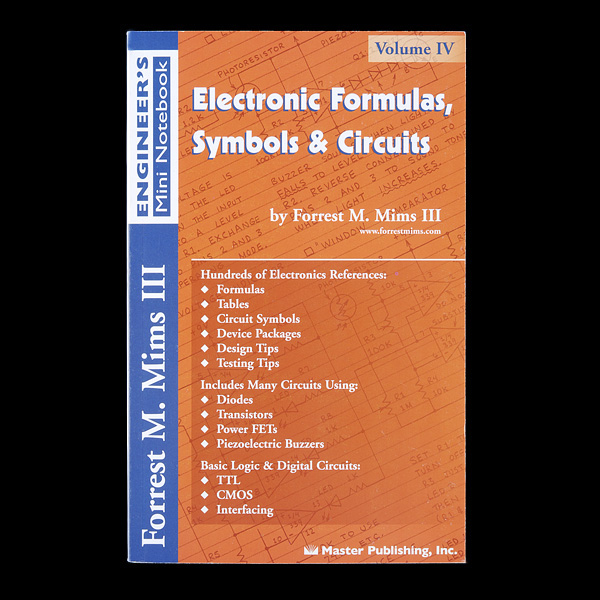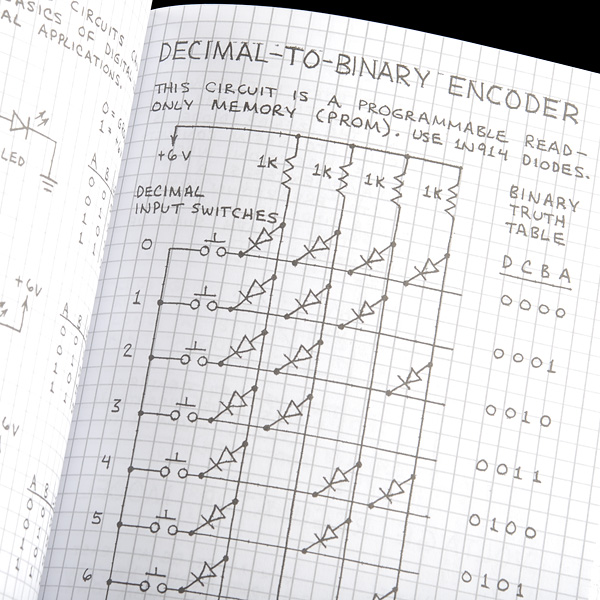Electronic Formulas, Symbols & Circuits
Forrest M. Mims III has written more than sixty books about science, lasers, computers, and electronics. In 1993, He received a prestigious Rolex Award for a simple instrument that he developed to measure the ozone layer. He is a member of the Institute of Electrical and Electronics Engineers (IEEE), the National Science Teachers Association, the Texas Academy of Science and many scientific organizations. When this guy put together a set of electronics reference books, we were excited to get them. The Engineer's Mini Notebook series is a set of four handbooks that lay out, in plain language, the foundation of electrical and electronic knowledge. Our engineer's here at SparkFun cited several things in these books that they remembered learning in school, stuff that turned out being really useful.
Electronic Formulas, Symbols & Circuits provides a complete, basic electronics reference guide. Included are many frequently used electronic formulas, tables, circuit symbols, and device packages. Also featured are basic resistor and capacitor circuits, plus many circuits using piezoelectric buzzers, LEDs, FETs, and ICs. Also included are some 100 digital logic circuits ranging from simple gates and oscillators to sequencers, shift registers, and data selectors. Design and testing tips are provided to help you plan and troubleshoot your circuits.
**Info: **
- Author: Forrest M. Mims III
- Publisher: Master Publishing, Inc.
- Paperback: 192 pages
- ISBN-10: 0945053304
- ISBN-13: 978-0945053309
Electronic Formulas, Symbols & Circuits Product Help and Resources
Core Skill: Electrical Prototyping
If it requires power, you need to know how much, what all the pins do, and how to hook it up. You may need to reference datasheets, schematics, and know the ins and outs of electronics.
Skill Level: Noob - You don't need to reference a datasheet, but you will need to know basic power requirements.
See all skill levels
Comments
Looking for answers to technical questions?
We welcome your comments and suggestions below. However, if you are looking for solutions to technical questions please see our Technical Assistance page.
Customer Reviews
4.5 out of 5
Based on 2 ratings:
1 of 1 found this helpful:
Good reference for beginners
This book (and the whole series) is written in a approachable manner giving beginners the building blocks of understanding and building circuits. Many of the circuits in the book could easily be replaced by a micro and some code but doing things in hardware is a good learning experience.
Electronics tech student
I've seen this book before but never purchased it. Now that I'm a student for electrical engineering technician, it's indispensable.





Shame about the spelling error in the title.
Great book! All of the info is online (what isn't), but its always nice to have it in print. This is definitly becoming my go to book.